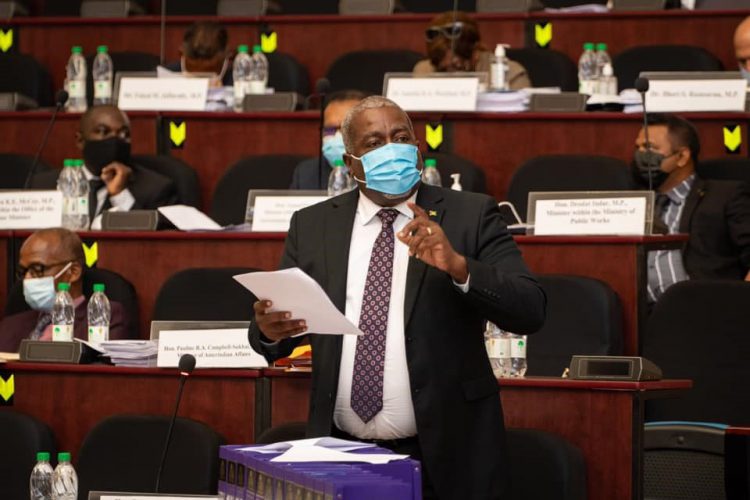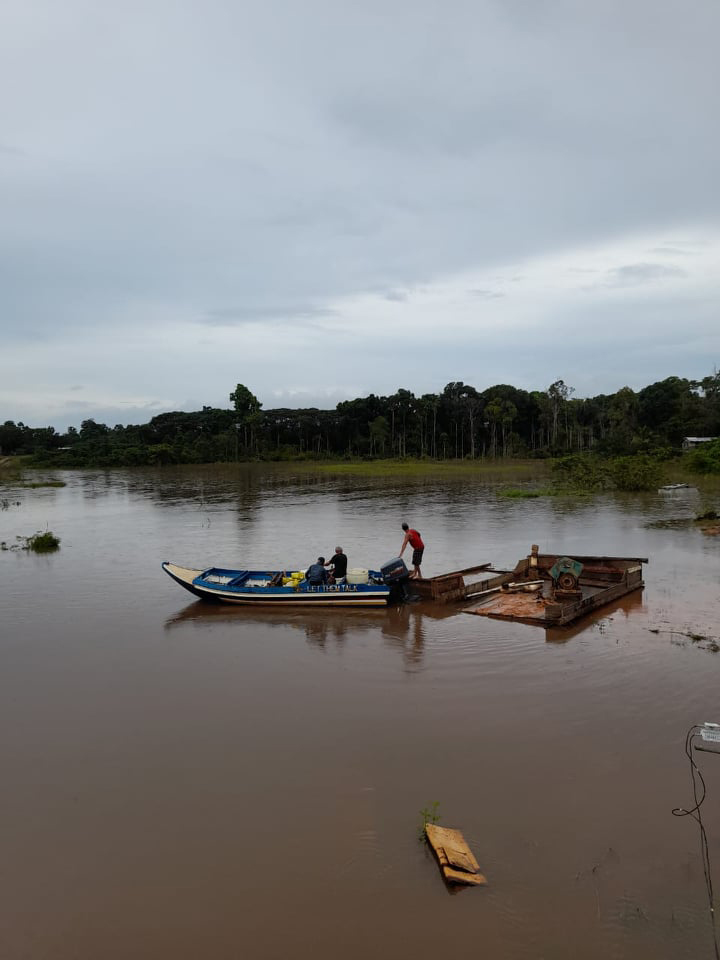With the rainfall recorded over the past month being the second highest in four decades, Prime Minister Mark Phillips yesterday reported that close to 30,000 households in more than 300 communities across the country have been affected by the resulting floods.
“Based on the latest seasonal reports, it is estimated that we will continue to experience above normal rainfall during the period June to August, 2021,” Phillips also told the National Assembly on Thursday afternoon at the Arthur Chung Conference Centre at Liliendaal.
“With these conditions expected to continue in the coming weeks, Mr Speaker, residents are asked to take necessary precautions and safeguard against additional flooding, strong winds, lightning and mud slides in their community,” he warned.

According to Phillips, the rainfall experienced during last month alone was recorded as the second highest amount in the country in the last 40 years.
He said at least for the period of June into mid-July flooding remains a concern for the nation.
The situation in the hinterland, Phillips added, was “equally distressing” since food security in all of the hinterland communities, especially those situated in regions 7, 8 and 9, is threatened. He also mentioned damage to homes, loss of livestock and domestic animals, the destruction of crops and farmlands and other forms of livelihood.
Phillips noted that to date the severe conditions have affected over 29,300 households in more than 300 communities.
“Families, Mr Speaker, have been forced to evacuate and seek sanctuary at shelters due to the damage caused to their homes,” he said.
Presently, Phillips added, 201 persons are housed in shelters after they were forced to flee their homes.
Although it has receded in some parts, floodwater remains at significant levels in most of the country’s regions, with residential and farm lands along the riverine villages in regions 1, 2, 5, 7, 8, 9 and 10 the worst affected.
According to Phillips, President Irfaan Ali yesterday signed a declaration, declaring a level 2 disaster in the country.
“This is a level 2 disaster, Mr Speaker, and what it simply means is that while we have the national capacity to respond and are not yet overwhelmed, we are seeking some external assistance as required to bring relief to the people during this difficult time,” Phillips told the House.
‘Swift’ response
In providing the update, Phillips also outlined government’s “swift” response to the flood-affected areas.
“Cabinet members and other government officials conducted multi-stakeholder outreaches to affected communities throughout the country to conduct a firsthand assessment of the situation and lead and participate in the ongoing relief measures for people,” he said.
To date, Phillips noted, the government has received more than $35 million in monetary donations towards flood relief.
The Civil Defence Commission (CDC), he added, has been active in its shelter management, evacuation and relief distribution efforts across the country.
A total of 19,935 food hampers and 17,529 cleaning hampers were distributed to the affected communities thus far.
Phillips further stated that there is also ongoing management of the shelter operations in several areas by the CDC.
Additionally, he said, more are also being set up.
“Mr Speaker, these response measures will remain in place as the Civil Defence Commission continues to receive reports of flooding across the country,” Phillips noted.
According to Phillips, the National Drainage and Irrigation Authority (NDIA) has been conducting drainage assessment and remedial works in key affected areas.
Engineers are also continuing to monitor drainage systems including sluices and pumps, he added.
With the current weather conditions expected to continue, Phillips explained that all the municipalities, Regional Democratic Councils (RDCs) and Neighbourhood Democratic Councils (NDCs) are conducting outreaches to respond to the situation.
Additionally, Phillips also provided an insight on some of the works which were done to address the situation in the various regions. The works include the clearing of dams/canals and the repairs and deployment of pumps.
Phillips assured that as long as the situation continues, the CDC in collaboration with other agencies will ensure that timely assessments and responses are undertaken in keeping with the process set out in the regional disaster management plan.
He said government and the CDC will also continue to engage with the NDIA, the National Agricultural Research and Extension Institute, the Guyana Livestock Development Agency and all the ministries to address key emergency concerns in all communities.




